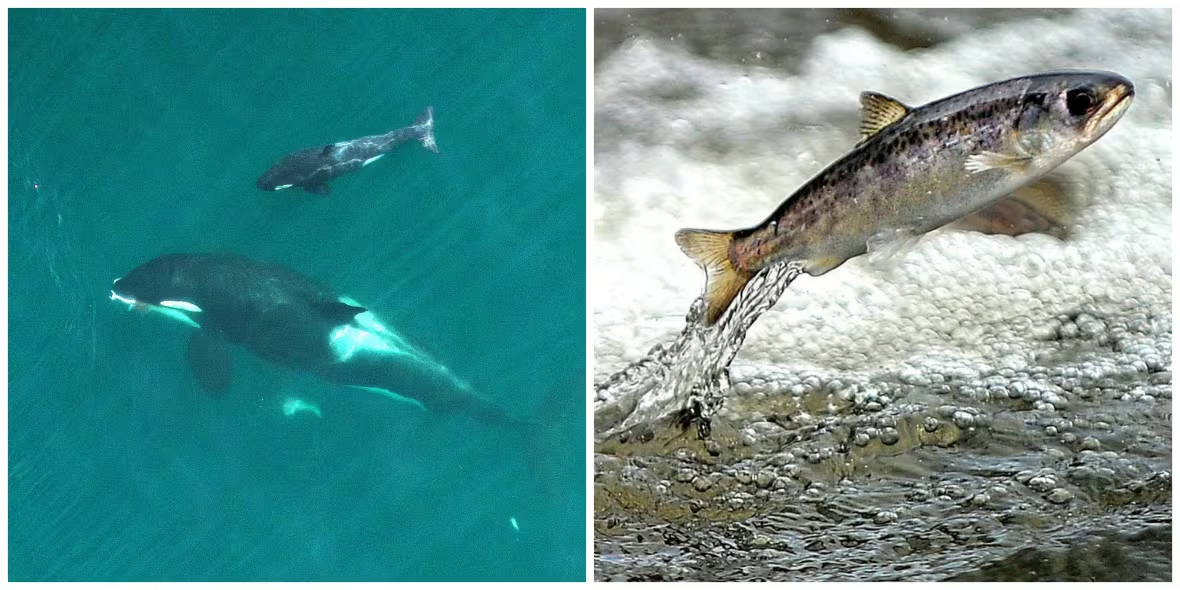U.S. cities declare inherent rights for endangered orcas that swim in the Salish Sea
Port Townsend council in Washington the first to make proclamation on southern resident killer whales

Two American cities near British Columbia have taken efforts to protect endangered Southern resident orcas that have become a political poster child for climate change on both sides of the border.
On Dec. 5, David Faber, the mayor of Port Townsend — in the northern coast of Washington State, nearly 60 kilometres southeast of Victoria — signed a proclamation declaring the inherent rights of orcas.
Those include "the right to life, autonomy, culture, free and safe passage, adequate food supply from naturally occurring sources, and freedom from conditions causing physical, emotional, or mental harm," reads the document.
A week later on Dec. 12, the mayor of Gig Harbor, 28 kilometres south of Port Townsend, did the same.

Southern resident orcas, commonly known as killer whales, are endangered species in both Canada and the U.S. According to Fisheries and Oceans Canada, their numbers have dwindled to an estimated 73 whales this year.
The chinook challenge
The southern residents have no natural enemies — but face threats from pollution and climate change.
They feast solely on chinook salmon, and the population of that particular fish has fallen dramatically over the last 100 years due to human actions including farming, the construction of dams, industrial activity, and the destruction of estuaries.

The fragile food chain is also threatened by temperature changes in the ocean.
According to the United Nations, the oceans absorb about 30 per cent of carbon dioxide produced by humans. This CO2 intake is changing the chemistry of the water, creating a ripple effect on the food chain.
Michelle Bender, ocean campaigns director for the Earth Law Center in the U.S., describes the proclamations as a dream come true — something she and other activists have pushed for for years.
"This emerging legal framework is really taking off internationally. We're seeing it in over 30 countries, from the local to national level," said Bender.
Legal implications
While the proclamations are not legally binding, Bender says they serve as value statements and community affirmations that can be used as a spring board for further action.
Speaking on CBC's On The Island Wednesday, Bender said she is hoping to get more communities in Washington State to do the same thing as a way to pressure the governor to take state action.
Victoria Shroff, an animal law lawyer and professor based in Vancouver, says she likes the idea — even if the proclamations aren't legally binding.
"It's asking for co-operation, to utilize principles of one health: interconnection between human lives and animal lives," she said.
Shroff also said the move acknowledges that orcas are sentient beings who are clearly intelligent and have their own culture.
Bender and Shroff say they are excited to see the idea of "rights of nature" — recognizing the rights of the environment and all living species that inhabit it — continue to grow.
CBC reached out to Fisheries and Oceans Canada (DFO) for a statement regarding the U.S.'s declarations, but the DFO said it would not be able to comment in time for publication.

For more on the threats to the southern resident killer whales and the efforts to save them, listen to the CBC British Columbia original podcast Killers: J Pod On The Brink, hosted by Gloria Macarenko.
With files from On the Island, Kathryn Marlow and Bridgette Watson

